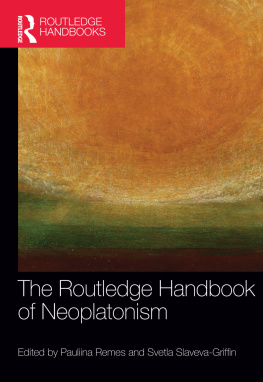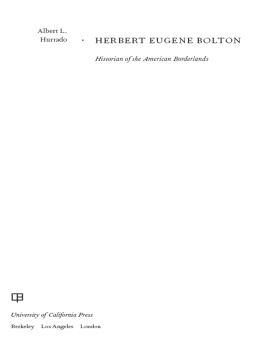First published 1965 by Transaction Publishers
Published 2017 by Routledge
2 Park Square, Milton Park, Abingdon, Oxon OX14 4RN
711 Third Avenue, New York, NY 10017, USA
Routledge is an imprint of the Taylor & Francis Group, an informa business
Copyright 1965 by Taylor & Francis.
All rights reserved. No part of this book may be reprinted or reproduced or utilised in any form or by any electronic, mechanical, or other means, now known or hereafter invented, including photocopying and recording, or in any information storage or retrieval system, without permission in writing from the publishers.
Notice:
Product or corporate names may be trademarks or registered trademarks, and are used only for identification and explanation without intent to infringe.
Library of Congress Catalog Number: 2007025982
Library of Congress Cataloging-in-Publication Data
Rumney, Jay, 1905-
Herbert Spencers sociology / Jay Rumney.
p. cm.
Originally published: London : Pub. for Herbert Specers trustees by Williams and Norgate, (1934).
Includes bibliographical references and index.
ISBN 978-0-202-36167-3
1. Spencer, Herbert, 1820-1903. 2. Sociology. 3. Spencer, Herbert, 1820-1903Bibliography. I. Title.
HM585.R8685 2007
301.092dc22 2007025982
ISBN 13: 978-0-202-36167-3 (pbk)
Foreword
The republication of this book is eminently fitting at this time. It is a valuable, and most readable, contribution to a subject meriting renewed reflection.
Jay Rumney s HERBERT SPENCERS SOCIOLOGY first appeared in 1937. In that year Talcott Parsons, citing Crane Brinton, declared: Spencer is dead. But who killed him and how? It was the thesis of Parsons famous THE STRUCTURE OF SOCIAL ACTION that the evolution of scientific theory had put an end to Spencer. And for more than a generation the man whose name had been synonymous with sociology was, or so it seemed, repressed and forgotten.
Of late there has been a notable revival of interest in Herbert Spencer. Summary rejection of his ideas has yielded to a more judicious appreciation of his contribution to sociological thought. To be sure, social evolutionism in its classic form has passed from the scene. No one today considers society a biological organism. No longer does anyone believe in an iron or cosmological law of Evolution guaranteeing the unilinear development of human society to perfection. But while it was fashionable at one time to dwell upon those aspects of Spencers work that have since met an honorable demise, there is now undoubtedly a general agreement with Talcott Parsons more recent statement that Spencers thinking about society was informed with three main positive ideas: that of society as a self-regulating system, that of differentiation and function, and that of evolutionall of which remain as important today as they were when he wrote.
Indeed, the sociological work of Spencer is rich in passages that have the ring of contemporaneity. On the level of approach, they might serve as veritable models of the modem structural-functional mode of analysis. Even in regard to the principal assumptions of evolutionism, not a few sociologists and most anthropologiststoday profess a neo-evolutionism, however modified. They still insist on the usefulness of the concept of stages, and they would agree with Malinowski that certain forms definitely precede others: a technological setting such as expressed in the terms stone age, bronze age, iron age, or the levels of clan or gentile organization, of numerically small groups thinly scattered, as against urban or semiurban settlernents, have to be viewed from the evolutionary point of view.
In the re-examination of the sociological writings of Herbert Spencer, in the sifting of what is alive and relevant from what is dated and irrelevant in his thought, in the determination of the extent to which both the originality and the inadequacy of his views have stimulated scientific inquiry, I know of no better and more lucid guide than the present book by Professor Rumney. Its reissuance also affords me an opportunity to acknowledge my continued indebtedness to the man who, until his untimely death in 1957, was my friend and mentor throughout the many years of our association in the Department of Sociology at Rutgers University.
Joseph Maier
*. T. Parsons, Introduction to H. Spencer, The Study of Sociology (Ann Arbor: University of Michigan Press), 1961.
THE present volume Is designed by the trustees appointed under Herbert Spencers will to form the final volume of a series of works begun, by him nearly seventy years ago, but which he did not live to complete himself. It may therefore be desirable to recapitulate the circumstances in which the work was conceived and to relate how it has been carried through.
In 1867, to assist him in the preparation of the book he was then writing, The Principles of Sociology, Spencer devised a system, of collecting and classifying large numbers of facts relating to societies of different types, ancient and modern, in order to draw from them inferences and generalizations.
Spencer conceived the social organization of mankind to be evolutionary, and excludes the notion, of manufacture or artificial arrangement, while It implies natural development (Autobiography, chap, xxxvi). A social organism is like an Individual organism, it grows ; in growing It becomes more complex ; its parts acquire increasing dependence ; Its life is immense in length compared with the lives of its component units. Increasing integration is accompanied by increasing heterogeneity and increasing definiteness (ibid.).
From this scheme for the collection of materials by other hands than his own sprang the great series of volumes known as Descriptive Sociology, He found the results so obtained of so much interest in themselves and of such value apart from their use in connexion with The Principles of Sociology, that he decided to extend their scope and to issue them as a contribution to general knowledge.
He says in the Provisional Preface to some of the earlier volumes of the series : This classified compilation was entered upon solely to facilitate my own work ; yet after having brought the mode of classification to a satisfactory form I decided to have the undertaking executed with a view to publication ; the facts collected and arranged being so presented, apart from hypotheses, as to aid all students of social science In testing such conclusions as they have drawn, and in drawing others, uninfluenced by the hypotheses or prejudices of others.
The satisfactory form of the classification of societies consists of three large divisions, comprehending these groups : 1. Uncivilized Societies ; 2. Civilized Societies, extinct or decayed ; 3. Civilized Societies, recent or still flourishing.
Spencer pursued his work on the assumption that the entire social fabric of any race could be set forth In tabular form (short generalizations founded on the detailed Information supplied by the extracts), and on account of the size of these tabular statements he found it necessary to use an exceptionally large format (royal folio) so that the tables could be opened out to display in a sort of literary map the Information they contained.










